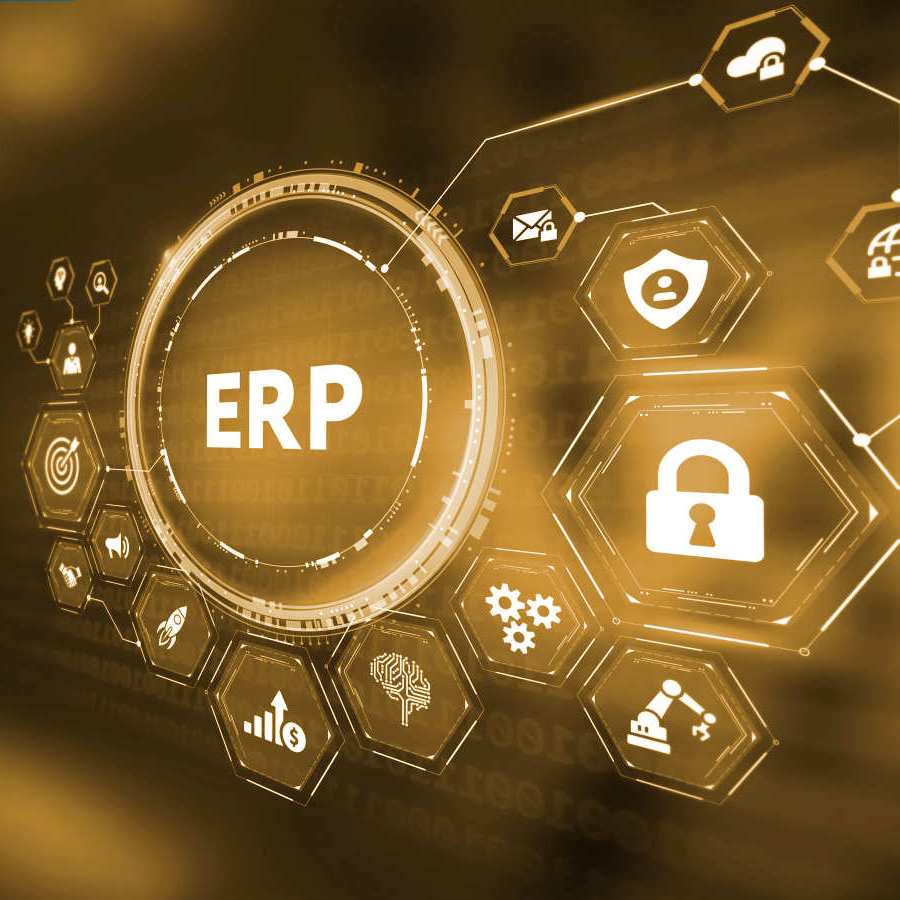
What Exactly is ERP for Manufacturers?
An Enterprise Resource Planning (ERP) system is an integrated software platform that helps businesses manage various processes such as production, inventory, sales, procurement, and more. For manufacturers, it serves as the backbone of operations, providing a seamless flow of data across departments, allowing for informed decision-making, efficient operations, and better resource management.
Manufacturers are increasingly turning to ERP software to stay competitive. Here’s why:
1. Streamlined and Automated Operations
One of the biggest advantages of ERP is automation. By replacing manual tracking with real-time, automated data across various functions, ERP enables manufacturers to streamline processes, minimize human error, and optimize operations.
2. Real-Time Data for Smarter Decisions
ERP systems provide instant access to real-time data, ensuring manufacturers can make informed decisions quickly. Whether it’s adjusting production schedules or managing inventory, having up-to-date information at your fingertips helps reduce delays and improves operational efficiency.
3. Precision Inventory Management
Inventory management is one of the most critical aspects of manufacturing. ERP systems allow businesses to track inventory levels, forecast demand, and prevent both overstocking and stockouts. By maintaining the ideal stock levels, businesses can save money on excess inventory and prevent production halts due to shortages.
4. Improved Production Planning and Scheduling
With ERP, manufacturers can achieve optimal production planning. The system provides visibility into production capacity, lead times, and potential bottlenecks, helping to reduce downtime, improve machine utilization, and enhance the overall production flow.
5. Cost Control and Waste Reduction
ERP systems provide invaluable insights into production costs. With access to accurate cost data, manufacturers can pinpoint inefficiencies, reduce waste, and optimize resource allocation, ultimately improving profit margins and ensuring more sustainable practices.
6. Ensuring Compliance and Quality Standards
Manufacturers face a host of regulatory requirements and quality control measures. ERP systems facilitate tracking of compliance standards and help ensure products meet quality specifications, preventing costly rework or regulatory fines.
7. Elevating Customer Service and Satisfaction
An integrated ERP system enables manufacturers to offer exceptional customer service. By streamlining order processing, managing delivery schedules, and providing real-time updates, businesses can meet customer expectations, reduce order lead times, and increase customer satisfaction.
Challenges in ERP Implementation: How to Overcome Them
Despite the immense benefits, implementing ERP in a manufacturing setting can present a few hurdles. Here are some common challenges and ways to tackle them:
1. Resistance to Change
Employees might resist adopting a new system due to comfort with existing processes. Overcome this challenge by providing thorough training, engaging stakeholders early in the process, and introducing the system gradually.
2. Integration with Legacy Systems
Many manufacturers still rely on legacy software that may not integrate easily with new ERP systems. Ensure that the chosen ERP solution has strong integration capabilities, and if needed, invest in software customization to ensure smooth data flow.
3. High Initial Costs
While ERP implementation can be costly, the return on investment (ROI) justifies the expense. Businesses should focus on the long-term benefits, such as cost savings, improved efficiency, and better customer satisfaction, to see a measurable ROI over time.
The Future of Manufacturing: ERP as a Competitive Advantage
As the manufacturing industry continues to evolve with the advent of new technologies, ERP systems are becoming indispensable for businesses looking to stay ahead of the curve. By embracing an ERP solution, manufacturers can improve operational efficiency, reduce costs, and enhance customer satisfaction, ensuring sustained growth and a competitive edge in the marketplace.
Conclusion: Empower Your Manufacturing Business with ERP
In today’s increasingly complex manufacturing landscape, adopting an ERP system isn’t just an option; it’s a necessity. With its ability to streamline processes, provide real-time insights, and improve overall efficiency, an ERP system has the power to transform your business operations and drive sustainable success.

Al-Araf Manufacturing ERP Solution: Tailored for Businesses of All Sizes
Al-Araf Technologies offers a comprehensive Manufacturing ERP Solution designed to optimize and streamline operations for businesses of all sizes. Our ERP system integrates core business functions such as production, inventory, procurement, sales, and financial management into one seamless platform. Whether you’re a small-scale operation or a large enterprise, our solution adapts to your unique business needs, enabling real-time data access, efficient resource allocation, and informed decision-making.
With Al-Araf ERP, you can achieve:
-
Enhanced operational efficiency through automation and integration
-
Real-time insights for smarter decision-making
-
Improved inventory management to reduce costs and waste
-
Streamlined production scheduling for optimal resource utilization
-
Seamless compliance management and quality control
-
Superior customer service with faster order processing and delivery times
Our solution helps manufacturers stay competitive, improve profitability, and drive sustainable growth. Whether you’re looking to scale operations or enhance existing processes, Al-Araf’s ERP is the key to unlocking your business’s full potential.
